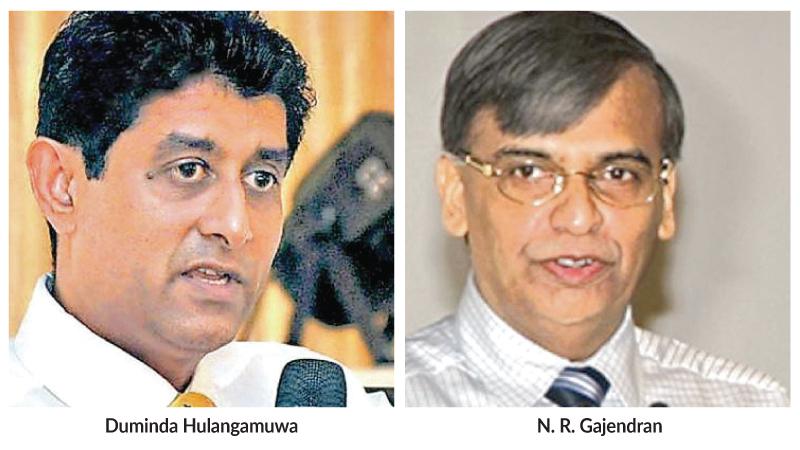
The Surcharge Tax is a progressive form of tax as it fulfills the principles of imposing a tax such as efficiency, ability to pay and paying it in peace by those who are targeted, a tax expert said.
However, the bone of contention of the tax is that the Employees’ Provident Fund and the Employees’ Trust Fund (EPF and ETF) which comprises a taxable income of over Rs. 2 billion, the savings of the working population, will have to bear a significant tax.
Partner, Gajma and Co. N.R. Gajendran said with regard to the EPF and ETF the drafters of the legislation may have followed the same model as the Super Gains Tax where the company referred as defined in the old Inland Revenue Act had a narrow definition but a company referred as defined in the new Inland Revenue Act had a broader definition. It uses the word corporation and a company includes a government but the Sri Lankan Government is excluded.
He said a company includes a pension or provident fund and added that if the funds have an income of exceeding Rs. 2 billion they would be taxed.
Partner, Ernst & Young, Duminda Hulangamuwa said the Surcharge Tax will help minimise Government borrowing and the printing of money which has adverse implications on the economy, but it will cause much pain to companies that will be taxed as the cash outflow thereby is a significant component to companies.
He said most of the companies are already burdened with cash flow issues due to the pandemic and having a tax over that will only worsen the situation.
There is no issue about revenue generation for state coffers but it should be done with a tax that is progressive, Hulangamuwa said, adding that the business community had proposed a progressive form of tax where there is a gradual increase in the tax percentage enabling companies to bear the cost. The surcharge tax is a disincentive for performance targetted, Hulangamuwa said.
The tax expert said the government lost revenue of around Rs. 600 billion due to tax cuts introduced in 2019. Thereafter the pandemic crippled key sectors of the economy resulting in a major loss of revenue to the government which had to spend on vaccination.
The Opposition has called a halt to the Surcharge Tax Bill given its adverse implications on the savings of the working class. MP Dr. Harsha De Silva said the Surcharge Tax Bill had provisions applicable to the Employees Provident Fund (EPF).
According to the tax, any individual, partnership, or company whose taxable income exceeds Rupees two billion for the year of assessment commencing on April 1, 2020 will be taxed at the rate of twenty-five percent.
He said based on the definition of the Inland Revenue Act, a company is included in the definition of a provident fund, a pension fund, a pension gratuity fund, or a similar fund and added that Bill would pave the way for a 25% Surcharge Tax to be levied on multiple funds including the EPF. The tax proposed in the Budget for 2022 will apply retrospectively from the year of assessment starting from April 2020. The tax has to be paid in two tranches in March and June 2022.
